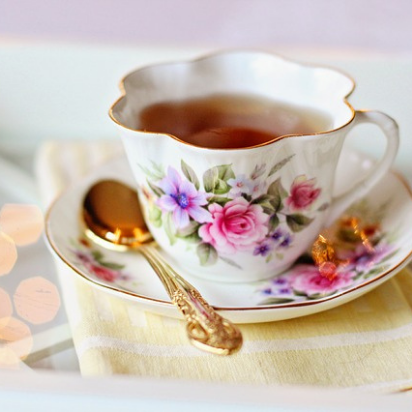How Everyday Rituals Help Us

How Rituals Help Us
Even simple rituals can be effective
In our fast-moving world, rituals have the power to ground
and stabilise us, and keep us focused and purposeful. They increase confidence, provide us with a sense of security and can help reduce anxiety and above all, rituals are a great way to increase peace and happiness.
So what is Ritual and how is it different from Ceremony?
A Ritual is basically a set of steps that are performed regularly for either their symbolic value or for creating balance in the everyday, like having your special tea in the morning in your favourite cup, while sitting in your garden to set up your day.
A Ceremony is performed for a specific intention to create change. Ceremonies use Languages of the Heart and bypass logic and analysis that then help create change in your life. These can include weddings, rites of passage, celebrating the seasons or creating ceremony for a specific intention to transition into a new space.
Rituals exist across all cultures and take all different forms. Some rituals are handed down to us, and some we borrow or adapt from others and of course , we can also create rituals for ourselves.
Rituals do not need to be explicitly spiritual or religious. For example, we can make rituals out of everyday tasks, such as getting dressed or brewing a cup of tea. Anything we set our mind to, that we assign a series of specific steps and that we embrace with intention, can be made a ritual.
Engaging in rituals benefits you. Here’s why…
Rituals Encourage Mindfulness
Rituals give us an opportunity to take our mind off distractions and focus on the task at hand. When we perform a specific ritual, we can immerse ourselves in the performance of it. So, the steps we take, the movements we make and the sensory aspects of it. What noises do we hear, what scents do we smell, how do we feel? This is mindfulness at its finest, and it is why many rituals are so calming: just like in meditation, we draw our attention into the present moment to peacefully observe and be engaged.
Rituals Increase Enjoyment
Scientists at Harvard found that when participants were asked to perform a ritual for eating chocolate, participants rated their enjoyment higher than those who weren’t. How often do you just quickly munch down that chocolate and not even think about it? If you take each bite and feel the sensation of it in your mouth become aware of how your whole body reacts to it and make it a complete enjoyable experience, our body is a much higher vibration than if we just eat it. Yes I am giving you permission to eat chocolate, as long as you do it as a ritual!
Rituals Decrease Anxiety
Ever notice that actors or athletes have certain things that they do before they perform? It might be having a specific drink, or making sure that they have certain objects around them or they are wearing their “lucky socks”. It’s not just mere superstition, the act of performing the gesture actually helps ease tension. These are rituals.
The subconscious mind works on symbols and connects those symbols to certain emotions. So by repeatedly using those symbols in a certain way, it reinforces positive feelings in the body. Research has demonstrated that doing a ritual, especially before a stressful or difficult task, reduces anxiety and stress levels. Rituals have a profound power to help us feel comforted and in control, even in situations where we feel we have so little control.
Rituals Help Us Live with Intention
The intention and meaning that we place on rituals is what makes them feel so Sacred. They are special because we have made the conscious choice to perform them. This is the vital difference between routine and ritual: a routine is something we do passively and indifferently, while the ritual is empowering because we actively engage with it.
Think of ways you can incorporate more rituals into your everyday life. If there are parts of your life that feel special and sacred to you, you can make them even more special by building rituals around them. For example, if you are a devoted runner, consider laying out your jogging clothes the night before. When it’s time to run, take a deep breath, do a specific set of stretches before and after, and give yourself a mantra or affirmation.
You can also create a ritual for the mere pleasure of doing so. It is important to carve out space and time to engage in thoughtful, deliberate processes. Vow to take time every week to engage in some sort of ritual whether it is eating a meal with candles and music, or having a bath with your favourite essential oils and a book or something else you feel you want to bring into your life; when you engage in ritual, the mundane feels meaningful, no matter what your beliefs.
